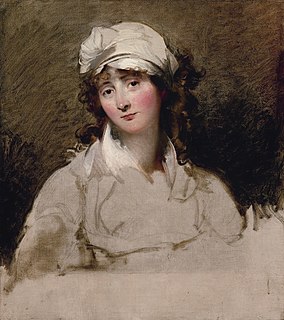A Quote by Ian Mcewan
For the professors in the academy, for the humanities generally, misery is more amenable to analysis: happiness is a harder nut to crack.
Related Quotes
Misery makes you special. Misery makes you more egoistic. A miserable man can have a more concentrated ego than a happy man. A happy man really cannot have the ego, because a person becomes happy only when there is no ego. The more egoless, the more happy; the more happy, the more egoless. You dissolve into happiness. You cannot exist together with happiness; you exist only when there is misery. In happiness there is dissolution.
After every happiness comes misery; they may be far apart or near. The more advanced the soul, the more quickly does one follow the other. What we want is neither happiness nor misery. Both make us forget our true nature; both are chains-one iron, one gold; behind both is the Atman, who knows neither happiness nor misery. These are states, and states must ever change; but the nature of the Atman is bliss, peace, unchanging. We have not to get it, we have it; only wash away the dross and see it.
Happiness is threatening and misery is safe - safe for the ego. Ego can exist only in misery and through misery. Ego is an island surrounded by hell; happiness is threatening to the ego, to the very existence of the ego. Happiness rises like a sun and the ego disappears, evaporates like a dewdrop on the grass leaf.
A man of fashion does not like to be reckoned poor, no more than he likes to be reckoned unhappy. We none of us endeavor to be happy, Sir, but merely to be thought so; and for my part, I had rather be in a state of misery, and envied for my supposed happiness, than in a state of happiness, and pitied for my supposed misery.
There's still sexism in the world, so there's still sexism in publishing and in graduate school. But it is different. Now, it's more coded and harder to detect. It was more explicit when I was in school. There were no rules against male professors asking out female students. The reverse didn't happen since female professors were rare or nonexistent. Visiting writers came, 90% of them male, and some expected that a female student would materialize as his date for the visit.





































